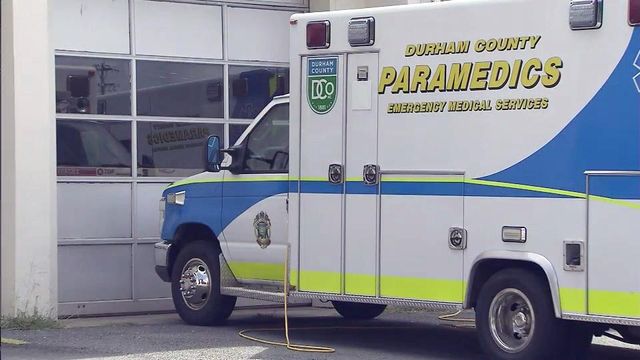Higher EMS standards creating paramedic crunch
Emergency medical providers are finding it harder to fill paramedic positions because of a shift in the industry toward higher qualifications, officials said.
Posted — UpdatedMany EMS agencies have started requiring at least an associate degree from their paramedics, who traditionally have obtained training without receiving a degree.
"You can be a paramedic without an associate degree, but a lot of the employers are looking to make that a requirement," said John Deal, director of Durham Technical Community College's Emergency Medical Science program, which recently began offering a five-semester degree sequence.
"The structure that brings makes you a better, more well-rounded employee versus somebody who goes through a certificate program, passes some tests and goes to work," Deal said.
Durham County EMS spokeswoman Kathy Mellown said many people don't understand that being a paramedic is a career – a full-time job that requires skilled workers.
"We are not ambulance drivers. We do drive ambulances, but we also take care of people," Mellown said. "Our primary goal is taking care of people."
Durham County has 14 openings for paramedics, she said, and Durham Tech's new degree program will provide a pipeline for the agency.
"It’s a challenge to get folks in here," she said. "The service we provide is 24/7."
Deborah Novak said she signed up for the degree program as a way to work toward her goal of becoming a nurse.
"The classes I take obviously will be college credit, so I can transfer them to university," Novak said. "No matter what I take, it will probably be along the same line from here on out. It will probably all be related to medicine, and it can only benefit – it’s just getting more knowledge."
Wake County EMS hasn't seen a paramedic shortage, but Jeffrey Hammerstein, the agency's chief of community outreach, said he expects a crunch in filling positions in the future as the economy changes and the industry standards get tougher.
"Paramedic level care in 2015 is quite advanced. It takes a lot of skills and training that must be constantly maintained," Hammerstein said. "As we grow as a profession, it is a benefit to have people who are formally trained and have degrees."
• Credits
Copyright 2024 by Capitol Broadcasting Company. All rights reserved. This material may not be published, broadcast, rewritten or redistributed.





